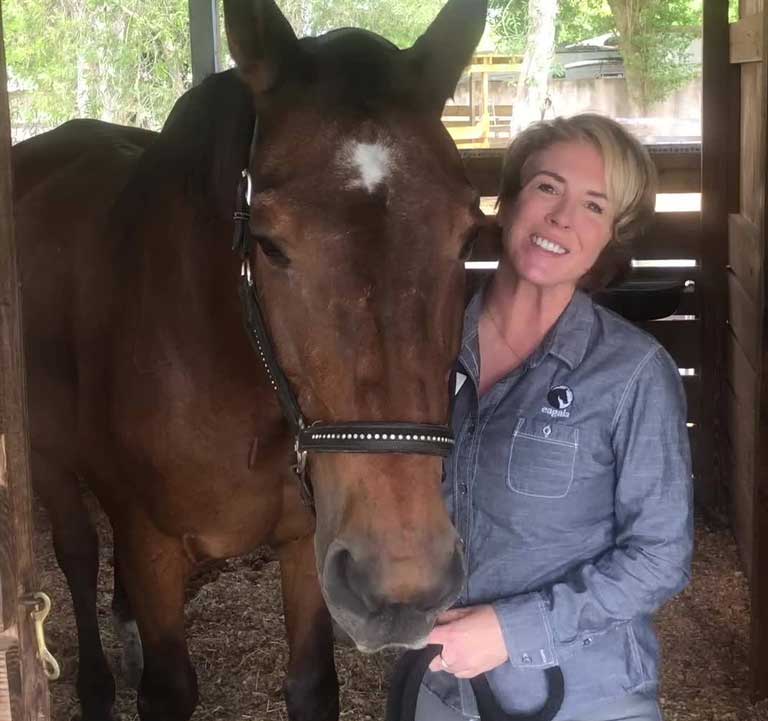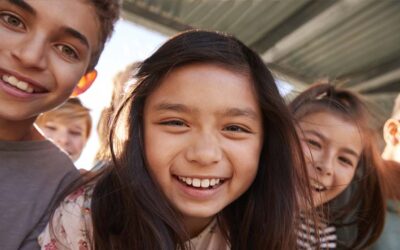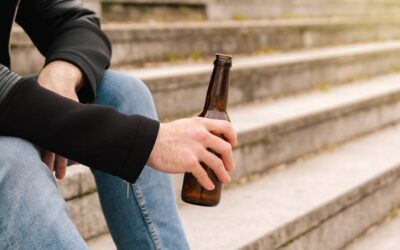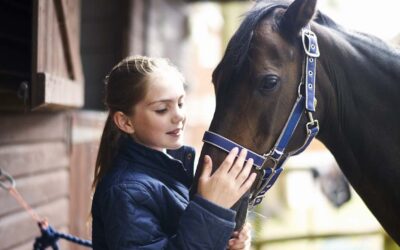Equine Therapy has been beneficial for many years in helping the physically disabled, autistic children, and even sufferers of PTSD. However, until recently our equine friends have not been introduced to help children of alcoholics – until now. I am an adult child of an alcoholic, and in 2009 I started the first equine foundation specifically aimed at helping children of alcoholics (COA’s) and addicts. Horses Healing Hearts uses horses to help COA’s build self-confidence and learn life-coping skills, and it was born here in Palm Beach County. HHH currently serves 30 children in PBC out of three sponsor barns in Boca Raton, Delray Beach and Wellington. Approximately one-fourth of our children have a parent absent due to jail, over-dose, suicide, or homicide.
Why are Horses So Instrumental in Helping Children of Alcoholics?
In the same way that dogs can “smell” fear, a horse can “smell” or sense “stuffed” or incongruent emotions. Because horses have been prey animals for over a million years, their survival instinct has required them to become acutely aware of their surroundings and the intentions of beings up to 100 feet around them. In fact, the limbic portion of their brain (responsible for sensing emotion) is abnormally large. You might wonder how does this translate to our needs? Let’s say a participant just got in a fight with his brother on the way to our session. He’s standing near the horse and showing a smile on his face, but inside he’s still upset about the fight. The horse will be very uneasy because he “senses this incongruence.” The horse will show his own anxiety by pinning his ears or swishing his tail. We’d ask the boy if there’s anything he wants to talk about. And remind him about horses being “feelings detectors;” typically, he’ll then know the horse “gave him up” somehow, and he will talk about the fight. You can physically watch the horse relax while he talks. This type of tool is invaluable with COA’s because they are so adept at stuffing and hiding their emotions at home.
Who We Are — What We Teach
HHH is a 501c3 equine facilitated learning program. We are not a therapy program. Our first goal is to maintain the kids’ physical safety while allowing the kids and horses to work their healing magic together. To deal with parents’ addiction and behavior, participants learn a very important concept, the 7 C’s:
- We didn’t Cause it
- We can’t cure it
- We can’t control it
- We can’t change it
- We can make healthy choices
- By communicating our feelings and
- Celebrating ourselves
How the Sessions Work
The children meet weekly at one of the three sponsor barns for a two hour session. We start with a 40 minute group session led by our child educator. The participants decompress and share highlights of their week. The educator briefly reviews some group rules. Next we discuss our subject for the week and start artwork (related to the subject). While doing this, our first three riders get their helmets on and go with a volunteer out to the arena to begin riding. The kids who are not riding stay with the educator to work on their art. The participants share different information while working on their art (possibly not comfortable discussing in a group setting.) We also make every effort to have siblings get time apart.
Out in the riding arena, there are side walkers to assist riders and a lead instructor overseeing the riding portion. As the participants advance, they can go on the lunge line and then ride independently in the arena with instruction. Each child is given approximately a 15 minute private ride instruction appropriate to their skill level.
Once all children have ridden, we close with a 15 minute “circle time” group session by talking about our rides or reading a meditation from the Al-a-teen book.
How a Horse Changed My Life
At six I vaguely remember the fights between my mom and dad. After breaking my mom’s nose twice, and her wrist once, they divorced; and we moved to Dayton, Ohio where she married another alcoholic. Ivan was a tall, well-educated pilot and engineer who lived on a farm. After we moved in, he decided we should have a celebratory bon fire with our toys because they “had no place” on a farm where you work hard. Surprisingly, he taught my two older brothers and me many valuable lessons, such as the value of hard work and excellent grammar. Then, a year later he shot our kittens in a drunken rage.
When I turned 12, Ivan got sober, divorced our mom, and started to take me to AA meetings, where I learned about alcoholism. Then my life changed even more — My first introduction to horses was indeed life changing. Ivan sent me for the summer to his sisters in Pennsylvania. Aunt Suzy was a Dressage rider and a concert pianist. She rescued a mustang named Jonathon, who was abused and tried to escape through a barbed wire fence. Grey-haired scars covered his brown coat. I identified with those scars, except mine were on the inside. Jonathon had been rescued, and I wanted to be. He was shown great care, love and attention and went on to do great things. I knew I could do the same. I just needed the chance. That summer, being mentored by my aunt, was my first big shot.
When I returned home to Ohio, I knew I wanted to work with horses the rest of my life. It was my dream. But for now, it was back to reality. Our housing conditions were not so good. Many times our heat or water was off due to non- payment, and my brothers and I had to use the restroom outside or go days without showers. One day my mother suffered an episode of bleeding esophageal varices (common from liver disease), and was rushed to the hospital. The doctors gave her only six months to live. The only parent I had ever known and my best friend was now given a death sentence. I loved her but hated her disease. My aunt Kay offered for me to live with her and my two cousins. I didn’t really care where I lived. I just wanted my mom NOT to die. I couldn’t understand why us three kids didn’t mean enough to her to make her want to live and stop drinking. None of it made any sense! And I didn’t realize it at the time, but the invitation to live with my Aunt was the next big opportunity I was given- a chance at normalcy.
So I went from no heat, no toilet, no shower to a “normal” house within three days. The transition to “normalcy” was not without its bumps but I did it. I went on to graduate high school. My aunt filled out the loan applications for college, and my brothers helped to pay my tuition as they worked full time. My mom lived another ten years, and died when I was 24 years old. She was 54 when she passed in a rest home alone. She never admitted she was an alcoholic.
There are lots of heroes in my life, even one with four legs and fur!! Without each and every one of them my life I know I would have followed in my mother’s footsteps. Before I moved in with my aunt, I was going to bars at 14 with my brothers and getting drunk. I was well on my way.
I owe them all a huge debt of gratitude. Starting HHH – is my way of paying it back or “forward” if you will.. an organization where COA’s have a shot at the same opportunity I had – a chance to be in the presence of horses and have their miracle spirit change lives the way it changed mine.




